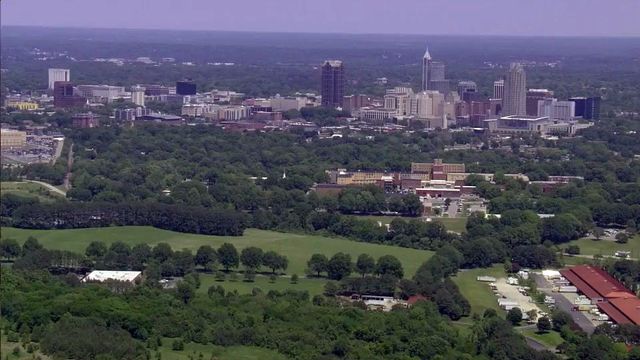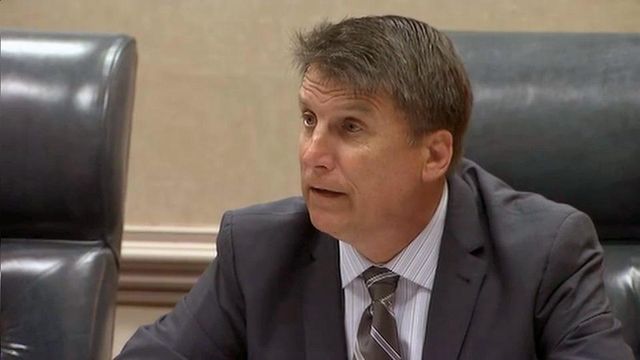Dorothea Dix deal gets final signoff
Raleigh leaders must now come up with the $52 million needed to pay for the purchase of the 308-acre Dix property and then develop the site into what they describe as a "destination park."
Posted — UpdatedThe city will pay $52 million for the land under the deal, agreeing to split some of the environmental cleanup costs and delaying taking full control of the property. Parts of the land will be leased back to the state for up to 10 years, while the state could hold onto another piece of the property for up to 25 years.
City leaders plan to turn the property into a destination park, an attraction that will incorporate both open space as well as an attraction that could draw visitors from across the state. What exactly that park will look like is unclear.
"I've had the most amazing list of things come across my desk," Raleigh Mayor Nancy McFarlane said, saying that city residents would be involved in the planning.
Mike Walden, an economist with North Carolina State University, said a major park would be a boon for Raleigh.
"If you look at parks of comparable size in other cities, we could be looking at well over $100 million of annual economic activity," Walden said.
The lease-back arrangements will give the state time to find a new home for the Department of Health and Human Services, which currently houses more than 2,000 employees on the sprawling campus in dozens of buildings, all of which are aging and many of which either need repairs or demolition.
The Dorothea Dix campus was home to the state's central mental health hospital for more than a century.
"I don't think there's any disagreement that the proceeds need to be used for mental health," state Budget Director Lee Roberts said, noting that Gov. Pat McCrory's budget would set the proceeds aside in a mental health trust fund.
Lawmakers have also said they would reserve any proceeds from the sale to help fund facilities and services for the mentally ill.
Still, some mental health advocates don't approve of the sale.
"We've got a deed that says seven times that it's supposed to be the North Carolina hospital for the mentally insane. There is no question legally what we're suppose to be doing here," Hope Turlington said. "I just witnessed the largest heist in the history of North Carolina."
Gregory Poole Jr., who leads the Dix Visionaries group that has worked for years to secure the land for a Raleigh park, said the mentally ill will be better served by the money the state will get from the sale than from holding on to the property.
"There is no question about the fact that funding should be used to help the mentally ill," Poole said. "We believe that the way that we have chosen to use this piece of property is the best way to use it, now and in the future."
When the last patients moved off the campus in August 2012, negotiations over the property heated up. In December of that year, outgoing Gov. Bev Perdue, a Democrat, inked a long-term lease deal with the city that immediately drew criticism from Republican legislative leaders, who threatened to scuttle the arrangement through legislation.
Instead, McCrory and the city agreed to renegotiate during a sometimes contentious process while state Senate leaders continued to grumble throughout about whether state taxpayers would earn enough from the deal. But over the past two months, parties on all sides have made their peace with the arrangement, and further stumbling blocks seem unlikely.
The last hurdle for the sale revolves around financing. City leaders must come up with the $52 million needed to complete the sale by the end of 2015 before the deal can close. The city will almost certainly have to borrow the money, either through a bond referendum or through a form of borrowing that doesn't require voter approval. McFarlane said the City Council would make decisions in May or June about how to borrow the money.
Related Topics
• Credits
Copyright 2024 by Capitol Broadcasting Company. All rights reserved. This material may not be published, broadcast, rewritten or redistributed.






